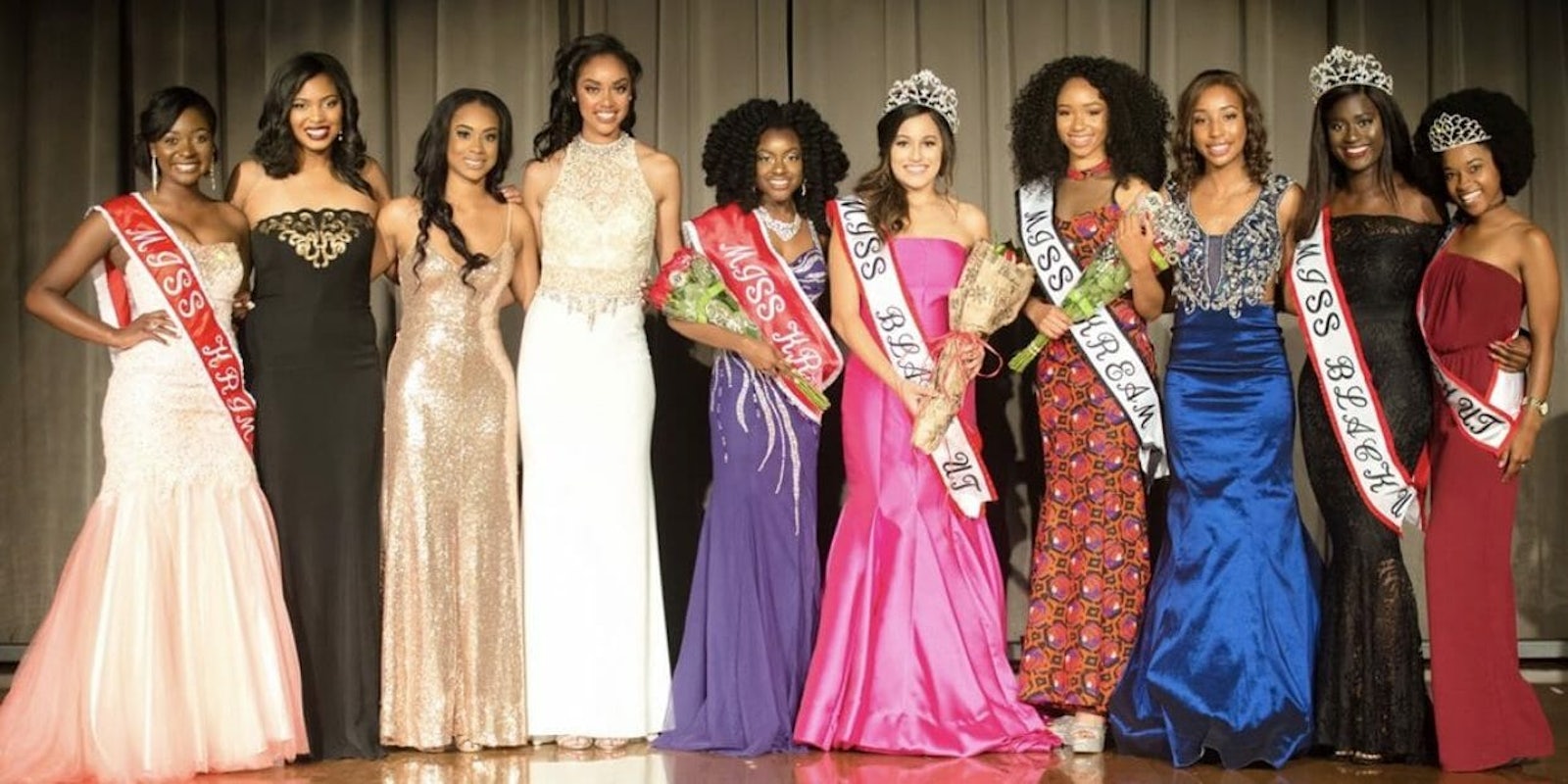Opinion
Long before I was crowned Miss Black University of Texas, I’ve worried about people thinking I’m not black enough. Some of it was warranted, some of it was in my own head. When you’re a light-skinned half-black, half-white woman, you are often asked, in subtle and overt ways, to prove yourself.
The fear even crossed my mind before I made the commitment to sign up for the pageant, which was a decision already out of my comfort zone. I tend to struggle with a fear of failure and it often keeps me from going after things I really want—from applying for competitive jobs to studying abroad. I worried I wouldn’t be talented enough or likable enough to succeed in the pageant. But I chose to ignore my concerns and pursue the opportunity. My hope was to be part of—and promote—an inclusive environment for all shades of black women.
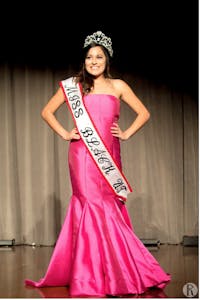
Though many might think pageant training is just about posing and picking out outfits, I was working up to three hours a day for five days a week to master a variety of categories, while juggling 18 hours of school, 10 hours at my internship (here at the Daily Dot), and leading the UT chapter of National Association of Black Journalists as its vice president. I had to prepare a transparent introductory monologue, which included the obstacles I face as a biracial woman. I had to work on my talent (singing) and my platform (the need to increase diversity in the media newsrooms), and I had to heavily study the news (because there would be political questions to answer, like “In your opinion, how can the nation maximize the number of women we have in corporate executive office positions?”).
But after a lot of hard work, laughter, and tears—and a lack of sleep—I was honored to be crowned 2017’s Miss Black University of Texas on my school’s auditorium stage. As 2016’s Miss Black University of Texas, Khady Diack, placed the tiara on my head and sash around my dress, I felt that I was breaking past a barrier within my identity. I finally felt that people saw me as “black enough.”
Growing up, I was constantly questioned about who I was racially. Many people thought I was Hispanic, others thought I was adopted, and then some would just blatantly ask me “What are you?” When I would tell people that I was mixed, black and white, it was almost never a good-enough answer. I was often asked to show a picture of my parents to prove that I was indeed what I already told them. And one of the worst yet most common responses that I got was that I was joking, that they wanted to know my “real” race.
Once I entered high school, I began to feel more secure in my identity as a biracial woman. As people continued questioning me based on the way I looked, I started to see it as an opportunity to explain that black comes in all different shades and hair textures. I finally felt confident in who I was because I realized that I am a walking example that the black community is not built on a single story. People continue to question my identity and others still try to exclude me, but it will not allow me to deny myself as a biracial woman who is black and white.
And now, three black judges, who I didn’t know, watched me tell my story and believed I was worthy enough for the title of Miss Black University Texas, validating what I had known all along.
That feeling of worthiness quickly vanished, though, when the fraternity that hosted the event congratulated me via social media. Soon, people who didn’t attend the pageant and who I don’t personally know began commenting and retweeting whether I deserved the title because of my skin color.
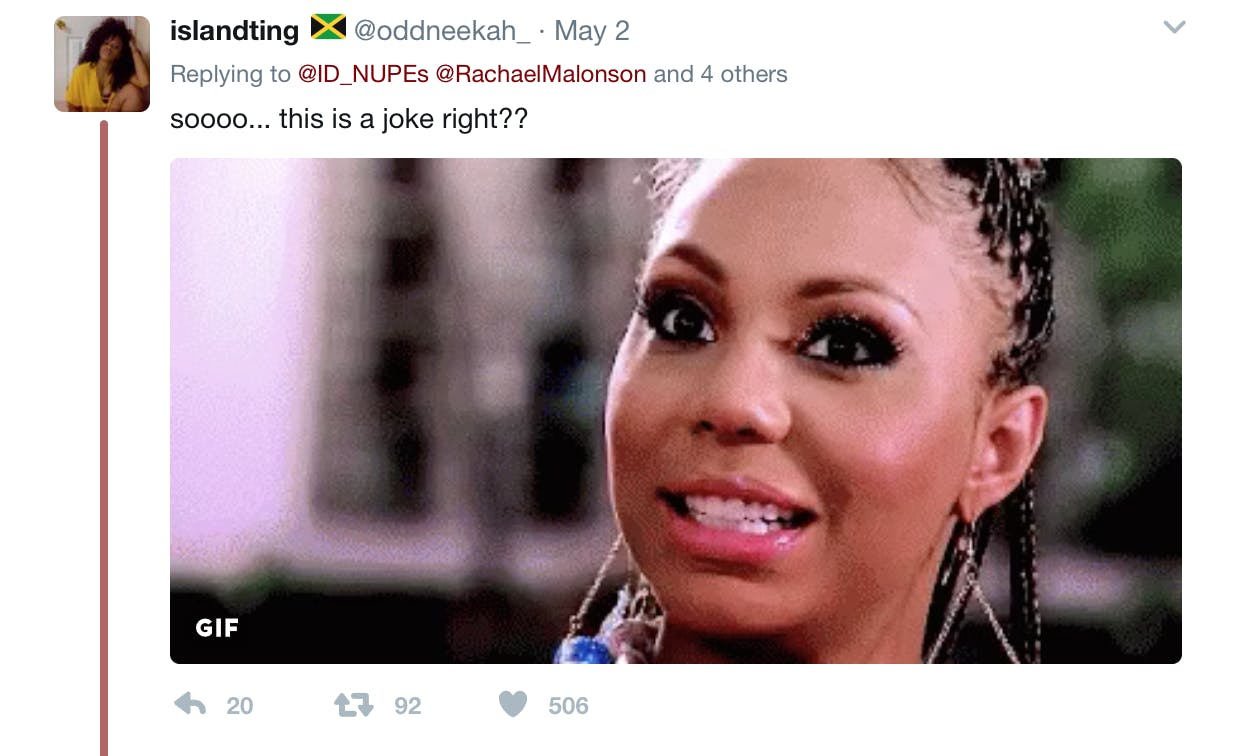


![]()
![]()
Negative comments kept flooding in. There were the constant alerts on my phone—hundreds of pings of hurtful takes about who I was allowed to be. Aside from Twitter, people started joining the backlash via Facebook and Instagram.
Every negative word began to tear me down. Three months of hard work, determination, and ultimately validation were quickly erased by the same questioning I’d faced my whole life. I felt like I had lost all privacy. I couldn’t hold it in anymore. I broke down in tears.
But those who knew the real me—and even those who don’t know me—began standing up for me and sending numerous words of encouragement.
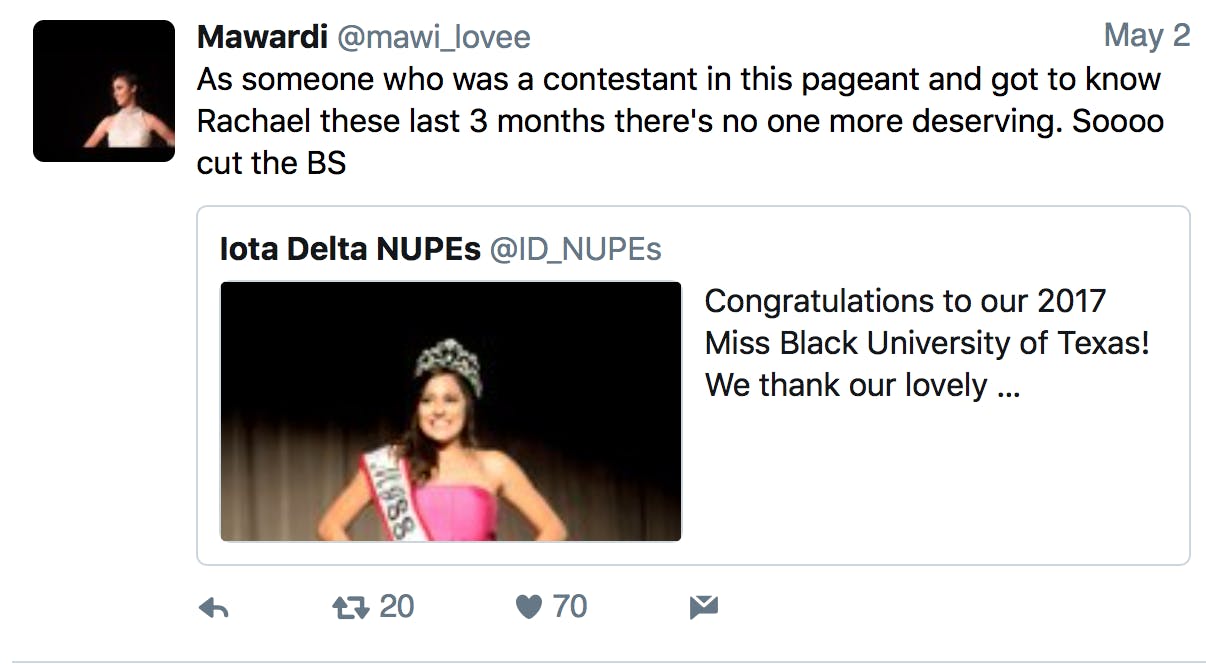

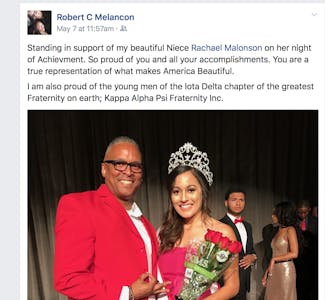

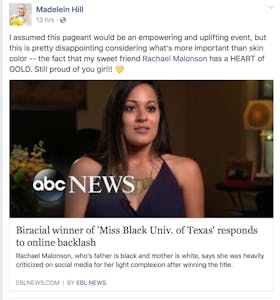
More people began addressing the issue on social media, and eventually, a variety of news outlets began sharing my story. I have even received encouragement from people as far as India. One woman from Spain reminded me that it does not matter what others can see from the outside and that I should always embrace my black roots.
The backlash I received after winning the pageant was intended to harm me, but it actually provided a greater blessing. I learned I am not alone. There is the large circle of friends and family who care about me, but there are also millions of mixed-race young people who have also worried if they are enough. And now I have a bigger platform to stand up for what I believe in—and for them as well.

